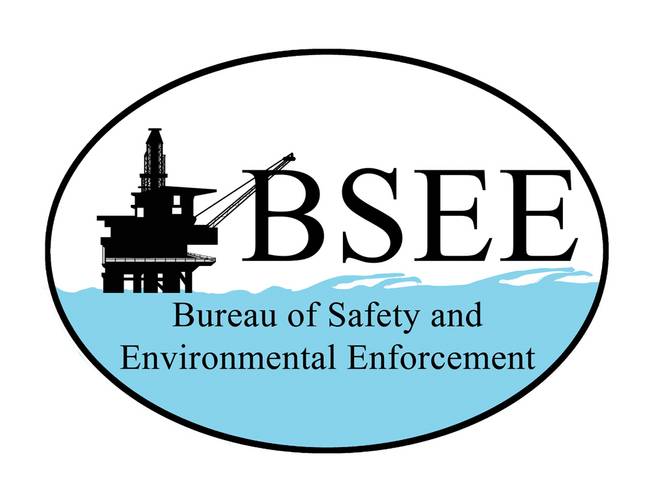Offshore Drilling
BSEE Issues New Requirements and Policies Addressing Offshore Activities
The Bureau of Safety and Environmental Enforcement (“BSEE”) issued three significant documents addressing response, enforcement, and safety issues related to offshore operations in August 2012. Specifically, BSEE issued (1) new guidance concerning regional Oil Spill Response Plans (“OSRPs”), (2) formalized policy addressing direct enforcement actions against contractors engaged in offshore activities, and (3) a Final Rule implementing new safety measures related to well control operations occurring on the outer continental shelf (“OCS”). The following is a summary of these new developments.
Background
BSEE’s recent actions stem from lessons learned from the Deepwater Horizon incident, an explosion and fire that killed 11 workers and injured many more in the Gulf of Mexico on April 20, 2010. Following the Deepwater Horizon incident, the Bureau of Offshore Energy Management, Regulation, and Enforcement (“BOEMRE”) published an Interim Final Rule (“IFR”) titled “Increased Safety Measures for Energy Development on the Outer Continental Shelf” on October 14, 2010. The IFR was based on a May 27, 2010 report of the same title from the Secretary of the Interior, who had been instructed by the President to prepare the report as a result of the Deepwater Horizon incident. The Secretary of the Interior then directed BOEMRE to adopt and implement the recommendations contained in the report as soon as possible. BOEMRE was subsequently replaced by the Bureau of Ocean Energy Management (“BOEM”) and BSEE. Also, after the Deepwater Horizon incident, BSEE issued Incidents of Non-Compliance (“INCs”) to two contractors involved, Transocean and Halliburton, for violations found to have contributed to loss of control of the well and has consistently made statements that it intends to pursue penalties directly against contractors in appropriate circumstances. In addition, BSEE has continued to review its response plan policies following lessons learned from the Deepwater Horizon incident.
New Guidance on Regional Oil Spill Response Plans
BSEE published Notice to Lessees (“NTL”) No. 2012-N-06 titled “Guidance to Owners and Operators of Offshore Facilities Seaward of the Coast Line Concerning Regional OSRPs” on August 10, 2012. The NTL is intended to provide clarification, guidance, and information concerning the preparation and submittal of a regional OSRP for owners and operators of oil handling, storage, or transportation facilities, including pipelines, located seaward of the coast line. The NTL states that the clarifications and recomended practices described in the NTL are based on knowledge gained from the Deepwater Horizon oil spill response. The goal of the NTL is to ensure national consistency of OSRP preparation. In addition, the NTL is designed to encourage the development of flexible and innovative offshore oil spill response techniques, particularly for a continuous high-rate spill.
The NTL explains that OSRPs required by 30 C.F.R. Part 254 will be evaluated by BSEE’s Oil Spill Response Division (“OSRD”). OSRD will determine whether the planned response is adequate for a worse case discharge by considering the following factors: location of the potential worst case discharge; proximity to sensitive resources; nature of the event; estimated discharge volume; oil characteristics; appropriate source control containment methods; weathering; and other resources at risk. The NTL also provides specific submission instructions, as well as a detailed instructions and suggestions for the preparation of OSRPs. The instructions provide BSEE’s preferred format and content and include references to the applicable regulations. Lastly, the NTL indicates that adherence to these encouraged practices will facilitate BSEE’s review of an OSRP, but is not required to obtain approval. The following is a link to the NTL: http://www.bsee.gov/uploadedFiles/BSEE/Regulations_and_Guidance/Notices_to_Lessees/2012/NTL2012-N06.pdf
BSEE Enforcement Action Against Contractors
BSEE published Interim Policy Document (“IPD”) No. 12-07 titled “Incidents of Non-Compliance (INC) to Contractors” on August 15, 2012. IPD 12-07 formally sets forth BSEE’s intention to issue INCs to contractors for serious violations of BSEE regulations. Any individual or entity performing an activity under an OCS lease must comply with regulations related to such activity. BSEE stated that enforcement actions will continue to focus primarily on lessees and operators. However, in appropriate circumstances, INCs will be issued directly to contractors.
BSEE set forth four general factors to be considered in determining whether to issue an INC to a contractor: (1) the type of violation; (2) the harm or threat of harm resulting from the violation; (3) the foreseeability of the harm or threat of harm; and (4) the extent of the contractor’s involvement in the violation. BSEE further stated that any time an INC is issued to a contractor, an INC will also be issued to the lessee or operator. The following is a link to IPD 12-07. http://www.bsee.gov/uploadedFiles/Issuance%20of%20an%20Incident%20of%20Non%20Compliance%20to%20Contractors.pdf
Final Rule on Well-Control
BSEE published its Final Rule titled “Increased Safety Measures for Energy Development on the OCS” on August 22, 2012. The Final Rule becomes effective on October 22, 2012. In short, it amends drilling, well completion, well workover, and decommissioning regulations related to well control. Although many of the provisions of the IFR were not changed in the Final Rule, some portions were modified in response to comments received and the recommendations of the Deepwater Horizon Joint Investigation Team final report.
The Final Rule:
• Establishes new casing installation and cementing requirements;
• Requires independent third-party verification of blind-shear ram capacity and subsea BOP stack compatibility;
• Requires new casing and cementing integrity tests;
• Establishes new requirements and function testing for subsea secondary blowout preventer (“BOP”) intervention;
• Requires documentation for BOP inspections and maintenance;
• Requires a Registered Professional Engineer to certify casing and cementing requirements; and
• Establishes new well control training requirements for deepwater operations.
The Final Rule diverges from, updates, or clarifies a number of issues in the IFR in various ways. Of particular note, the Final Rule:
• Incorporates an updated version API Standard 65, Part 2, which was issued in December 2010 to enhance and describe well control barriers and to define testing requirements for cement to be considered a barrier;
• Requires the operator to perform a negative pressure test only on wells that use a subsea blowout preventer (“BOP”) stack or wells with a mudline suspension system instead on all wells;
• Clarifies that dual float valves are not considered sufficient mechanical barriers;
• Requires BOP systems to include a wellhead assembly with a rated working pressure that exceeds the maximum anticipated well head pressure; and
• Extends the requirements for BOPs and well control fluids to well completion, well workover, and decommissioning operations.
The following is a link to the Final Rule: www.gpo.gov/fdsys/pkg/FR-2012-08-22/pdf/2012-20090.pdf
Conclusions
Owners and operators of offshore facilities should review the NTL to ensure OSRP preparation and submissions are in accordance with the NTL to expedite future BSEE approvals. In addition, lessees, operators, and contractors should review BSEE regulations applicable to their operations, including the new BSEE Safety and Environmental Management System requirements, in the context of contractor activities that could lead to enforcement action and the issuance of INCs and take appropriate action to minimize the likelihood of any future BSEE enforcement action. Finally, lessees, operators, and companies engaged in well control operations should review the Final Rule for new requirements applicable to their operations in order to take appropriate action to help ensure offshore activities are conducted in accordance with the Final Rule.
Jonathan K. Waldron, partner at Blank Rome, concentrates his practice in maritime, international, and environmental law, including maritime security.
[email protected]
Jeanne Grasso, partner at Blank Rome, focuses her practice on maritime, international, and environmental law for clients worldwide.
[email protected]
202.772.5956
Dana Merkel, associate at Blank Rome, focuses her practice on providing legal advice to companies involved in the maritime industry.
[email protected]
(As published in the September 2012 edition of Maritime Reporter - www.marinelink.com)





















